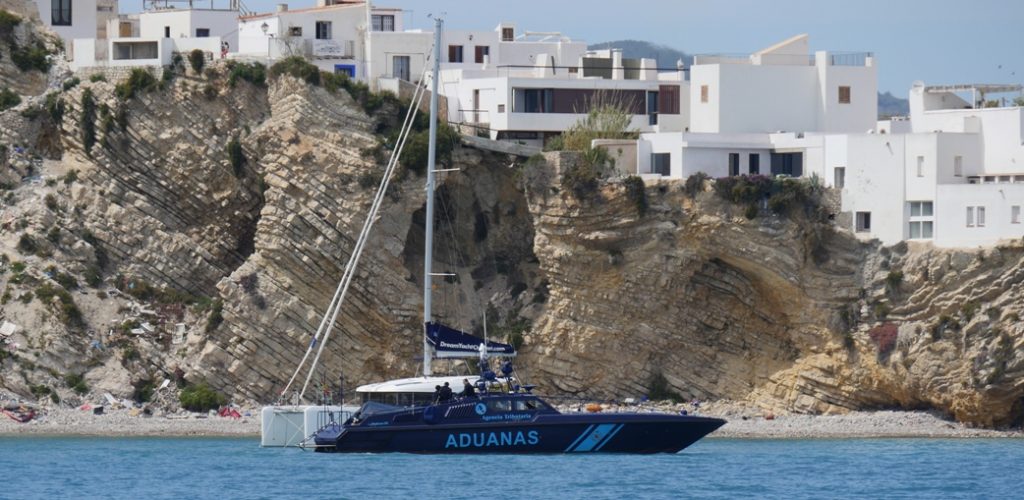Customs duty & VAT
Permanent importation
A customs procedure or, more precisely, importation occurs whenever an EU resident imports a boat from a non-EU country into the EU, i.e. whenever a person (of whatever nationality) living in Germany, for example, buys a boat in Switzerland, Norway, the USA, etc. and brings the boat to Germany. This means that import duties are due. Depending on the type and size of the boat, these duties are made up of 1.7 or 2.7% customs duty plus 19% import VAT.
The customs duty (not the import VAT!) may not apply if there is proof that the boat was built in a country where a customs facilitation agreement with the EU is in place – such as, for instance, with Norway, Switzerland, Turkey, and Croatia. However, the customs duty does apply to US, Australian and Taiwanese boats because there are no such agreements with these countries.
Importation of the boat must always be applied for (declared) in the first EU country it enters by land or by sea. The customs procedure itself may be completed at the border or in the country where the boat is to be berthed. This does not have to be the owner’s country of residence because the boat can only be cleared in the country where it is physically present. The obligation to declare applies regardless of the age of the imported boat or the year it was first operated. In other words, there is neither a date nor an age from which import duties are generally no longer payable.
 Zollboot kontrolliert eine Segelyacht vor der Hafeneinfahrt von Ibiza-Stadt.
Zollboot kontrolliert eine Segelyacht vor der Hafeneinfahrt von Ibiza-Stadt. Relocation
Relocation from a non-EU to an EU country, including the boat as part of a person’s “household effects”, also constitutes a customs procedure. In this case, no import duties will be due – regardless of the country in which the boat was manufactured – but the person relocating must be able to prove at least 6 months’ ownership of the boat and must have lived outside the EU for at least 1 year.
As a document proving that the customs procedure has been completed, the customs office will issue a no-objection certificate in both cases.
Temporary duty-free importation
The most frequent and most common of all customs transactions in connection with boats is temporary duty-free importation, also referred to as “temporary admission”. It applies when a non-EU resident intends to use a boat in an EU country for longer periods.
For instance, a Norwegian who decides to berth their boat in a harbour on the Côte d’Azur or on the Italian Riviera for the next few years will neither want to nor, in fact, have to import it permanently – nor will they have to pay import duties. Instead, they will place the boat under the temporary admission procedure and may then leave it in France or any other EU country for 18 months.
Conversely, an EU resident may, of course, temporarily berth their boat in a non-EU country. The relevant customs regulations and allowed time limits differ greatly in the various countries. In Europe, the usual minimum period is 6 months, after which the boat should remain under customs supervision for the same amount of time, i.e. another 6 months. The entire procedure is handled more or less routinely in the harbours. There may also be differences in how customs supervision is performed.
Returned goods
If a boat has been outside the EU for more than 3 years – for instance, because it was berthed in Croatia or in Turkey the entire time, or perhaps its owner used it for a cruise around the world – it is no longer considered a “returned good” exempt from customs duties and taxes.
Upon return of the boat to the EU, the customs office could then levy import duties (based on the current market value of the boat).
According to EU customs laws (returned goods regulation), any goods returned to the EU after having been outside the EU for more than 3 years at a time may be subject to import duties.
However, in reality it is rather unlikely for a boat berthed in Europe not to enter an EU harbour every now and then. You could prove this by an entry in the logbook (stamped by the harbour master’s office).
The Merkblatt über Zollbestimmungen für Schiffsführer von Wassersportfahrzeugen [Factsheet on customs regulations for pleasure craft skippers (available only in German)] issued by the Bundesfinanzdirektion Nord [one of five German federal finance offices] includes the customs regulations for pleasure craft used by private individuals.
